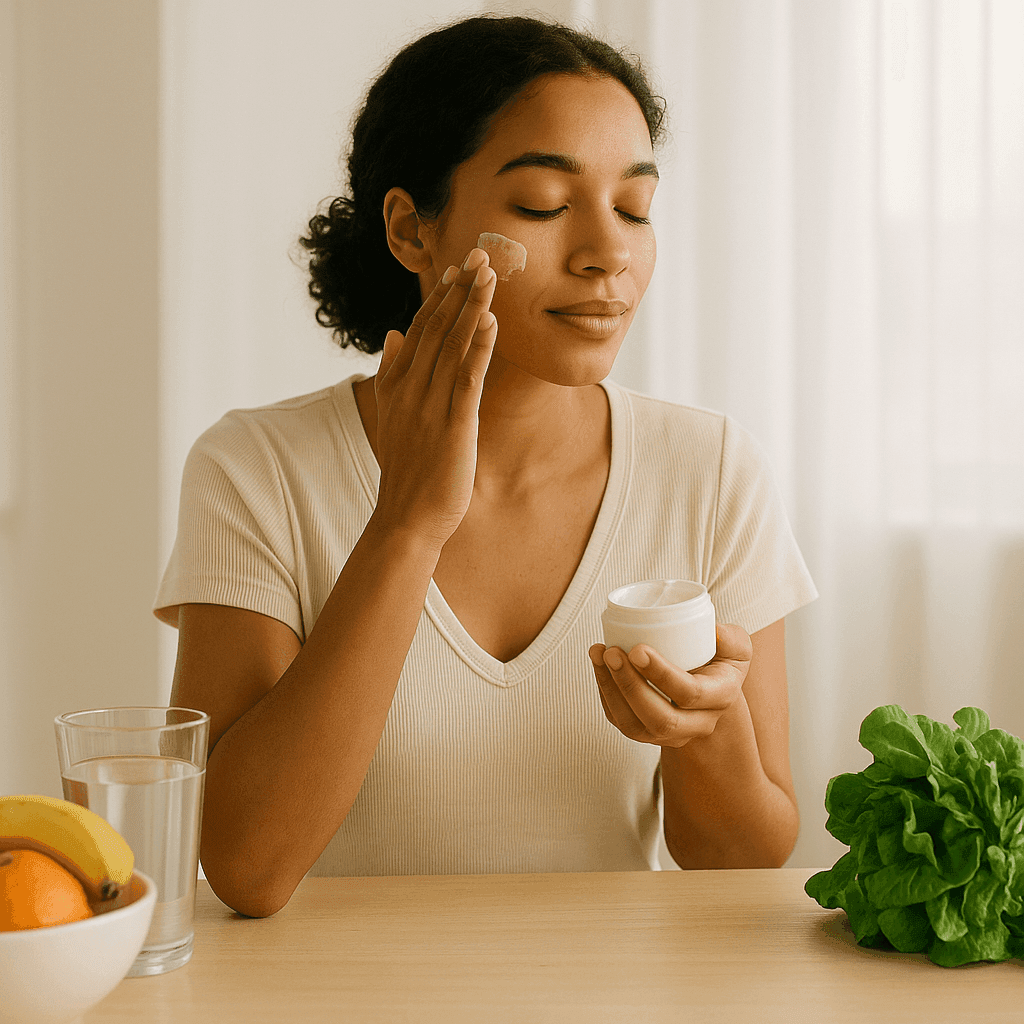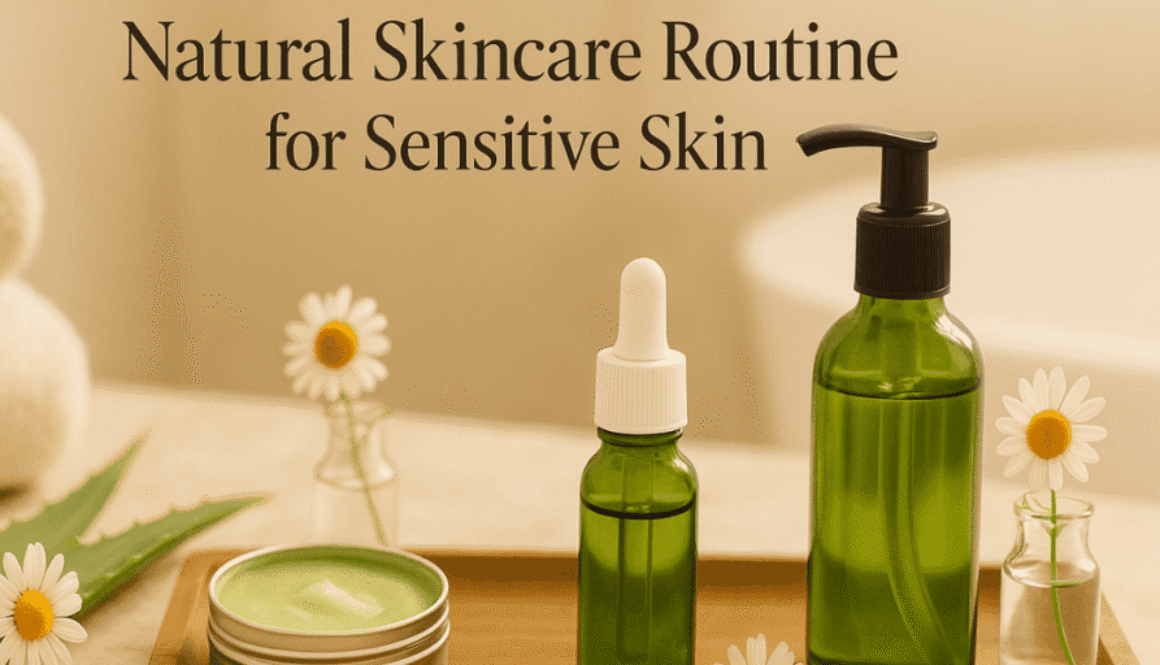Creating a Natural Skincare Routine for Sensitive Skin
Natural skincare routines are all about using gentle, plant-based ingredients and straightforward formulas that aim to soothe sensitive skin. However, even products labeled as “natural” can sometimes lead to issues. A recent study from 2023 revealed that more than 94% of skincare items marketed as “all-natural” or “suitable for sensitive skin” still had common allergens, which can cause the redness and itching that users are trying to avoid. It’s really frustrating when switching to “clean” products only results in more skin flare-ups. In this guide, we’ll explore why sensitive skin reacts the way it does, how to choose genuinely gentle ingredients, and how to create a daily routine (including cleanser, toner, moisturizer, and sunscreen) that soothes rather than irritates. You’ll learn how to read labels, steer clear of hidden irritants, and develop realistic habits so your skin feels truly cared for instead of constantly bothered.
Understanding Sensitive Skin: What It Is and How to Care for It
Sensitive skin isn’t a formal medical term; it’s more of a way to describe skin that tends to overreact to things that usually wouldn’t bother most people. This increased sensitivity often comes from a weakened skin barrier or an overly active immune response. Factors like genetics, conditions such as eczema or rosacea, hormonal shifts, stress, and environmental influences all contribute to this sensitivity.
For instance, dry winter air or too much sun can strip the skin of its natural oils, leading to inflammation—especially if your skin barrier is already struggling. As one dermatologist explains, genetic variations in the skin’s protective layer can make it easier for mild irritants to penetrate, resulting in more severe reactions. Essentially, your skin is letting in more stressors and losing moisture faster than it should, which is why it reacts so quickly.
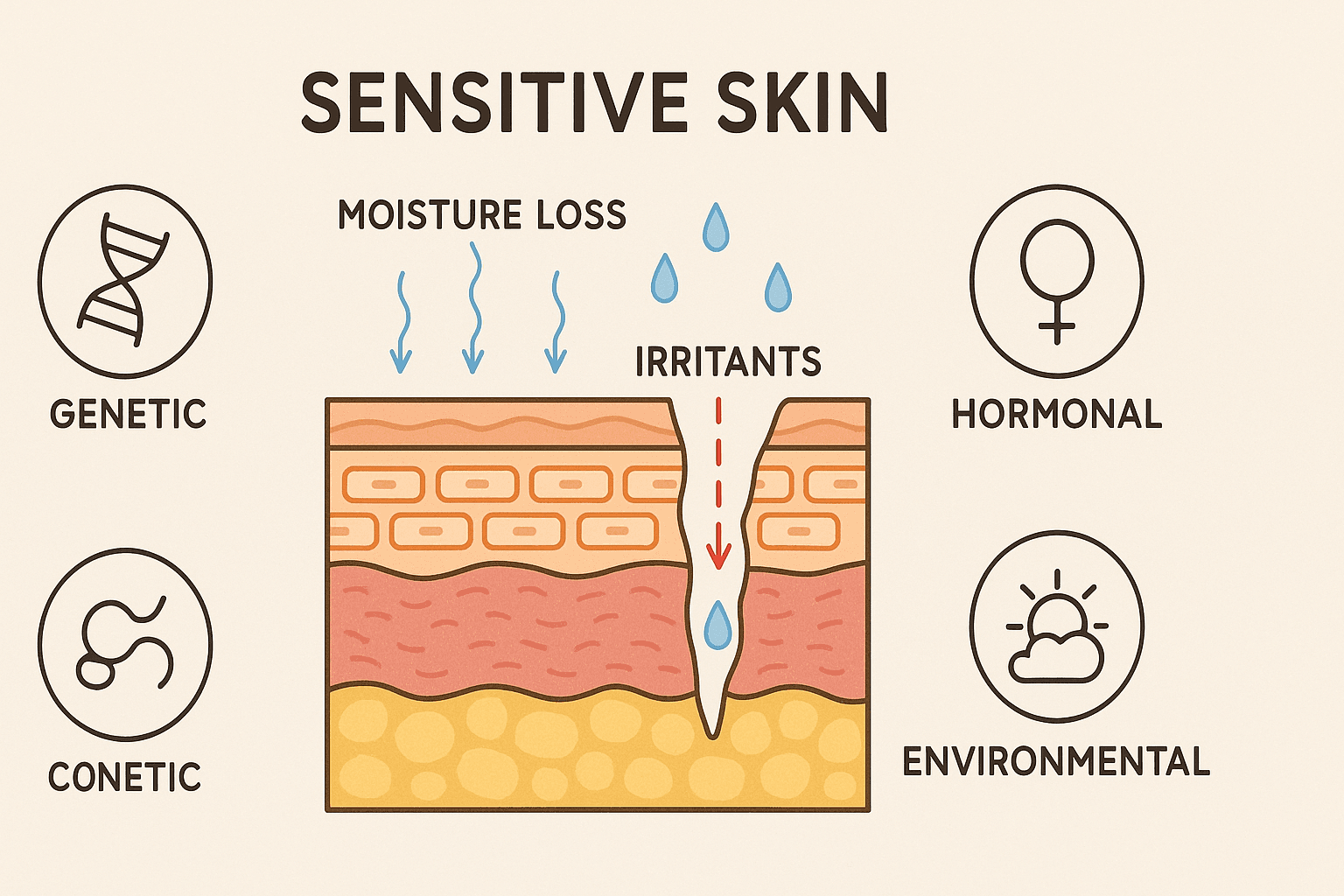
Common Symptoms of Sensitive Skin
If you have sensitive skin, you might experience a range of symptoms, including:
- Redness or rashes
- Burning or stinging sensations
- Itchiness
- Tightness or flaky patches
You might find that your face tingles after using a gentle cleanser or becomes red and dry when the weather shifts. In more serious cases, you could even develop hives or blisters from just one product that triggers a reaction. Since these symptoms can overlap with other skin issues like dryness, allergies, or eczema, sensitive skin is often more about how it feels than how it looks.
If your skin often burns, itches, or turns red after using everyday lotions or soaps, it’s a sign that you might have sensitive skin that needs a little extra care.
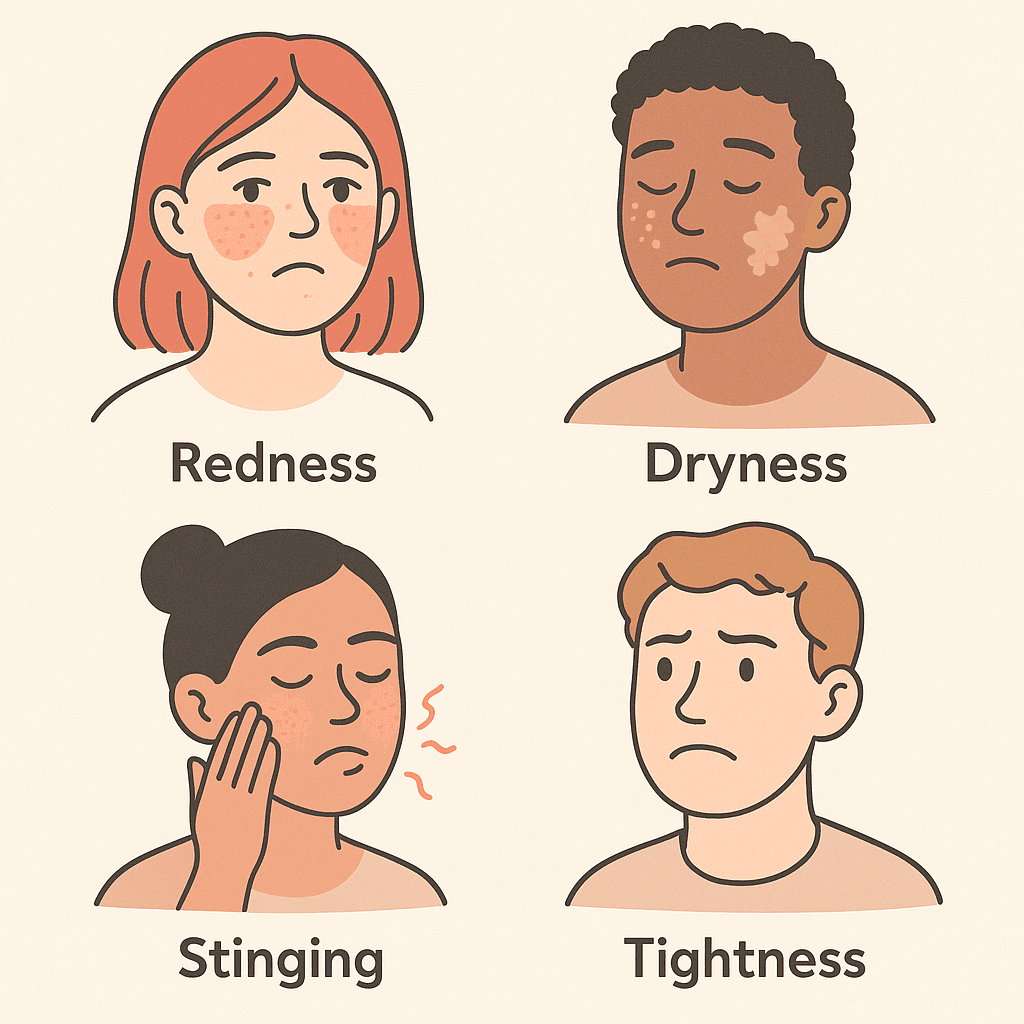
Natural Ingredients: Help or Harm?
There are plenty of natural ingredients that can be soothing for sensitive skin—if you choose wisely. For example:
- Colloidal oatmeal: This is well-known for its anti-inflammatory properties, making it great for calming dry, itchy skin and reducing irritation.
- Aloe vera: Studies have shown that high-concentration aloe can reduce redness caused by UV exposure—sometimes even better than hydrocortisone.
- Chamomile extract: Often used to soothe redness and eczema, animal studies suggest it can help reduce inflammation in dermatitis.
- Hyaluronic acid and gentle natural oils: These ingredients are fantastic for supporting the skin barrier and keeping moisture locked in.
But remember, “natural” doesn’t always mean safe. Some botanical ingredients can actually cause allergic reactions. Fragrant plant extracts like:
- Jasmine (amyl cinnamal)
- Clove (eugenol)
- Citrus oils (limonene)
…are common causes of contact dermatitis. Even popular essential oils like tea tree and peppermint can irritate sensitive skin or worsen conditions like rosacea.
How to Choose the Right Natural Skincare Products for Sensitive Skin
When shopping for natural skincare, keep it simple and safe—especially if you have sensitive skin. Choose products with short ingredient lists and look for labels that say “fragrance-free” and “hypoallergenic.” (Note: “hypoallergenic” isn’t strictly regulated, but it usually means the formula avoids known irritants.)
❌ Ingredients to Avoid
If you have sensitive skin, it can react to certain ingredients —even if they’re “natural.” Avoid:
- Fragrance or parfum (including essential oils like lemon or lavender)
- Drying alcohols (ethanol, SD alcohol, denatured alcohol)
- Sulfates (like sodium lauryl sulfate)
- Parabens, phthalates, formaldehyde-releasers (DMDM hydantoin, methylene glycol)
- Synthetic dyes and harsh preservatives
A study from Stanford revealed that more than 36% of “natural” products still had allergenic fragrance mixes, including limonene, linalool, and eugenol. Always take a moment to check the full ingredient list—sometimes even tiny amounts of irritants can lead to problems over time.
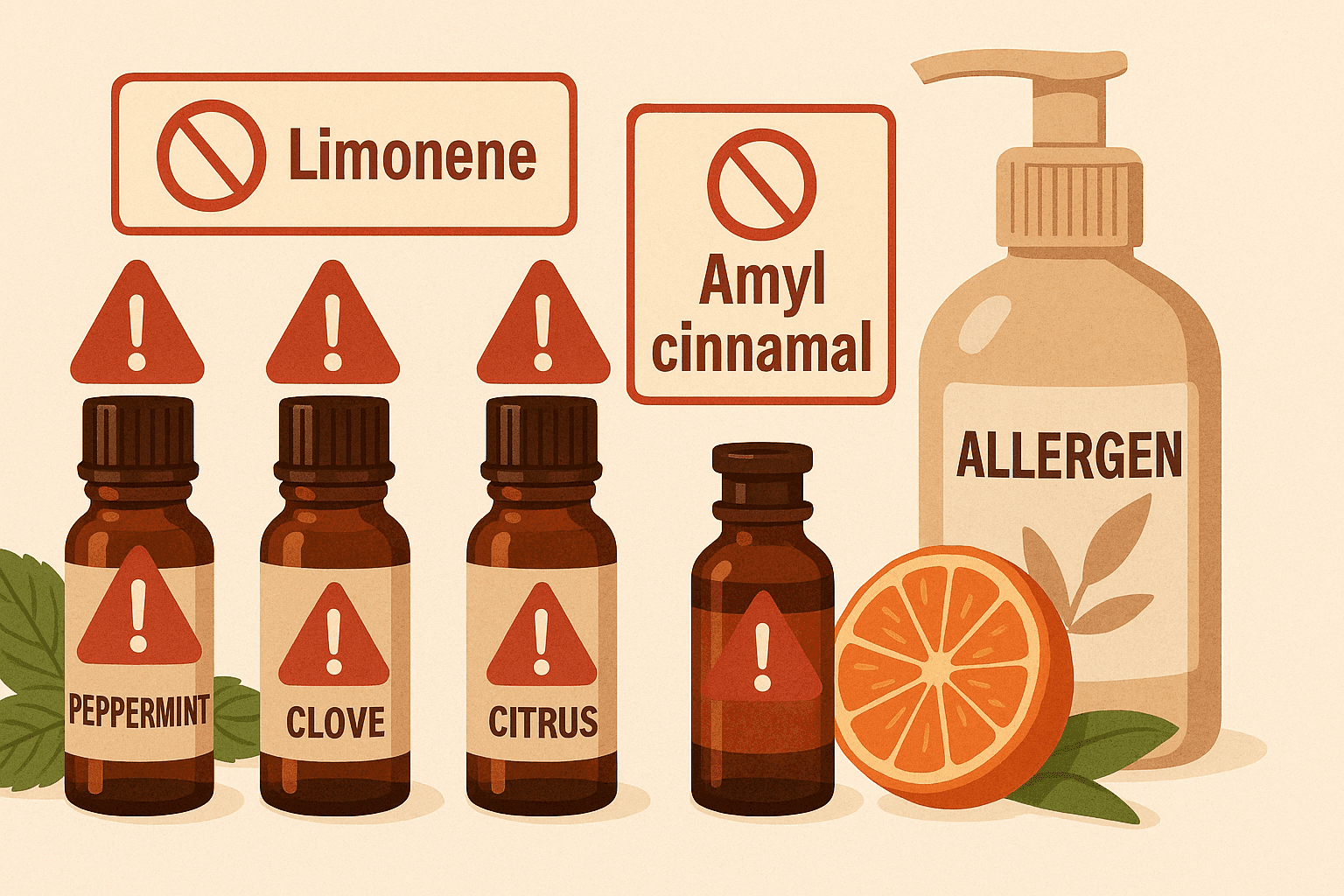
✅ Ingredients to Look For
Instead, focus on hydrating and calming ingredients that help support your skin barrier:
- Aloe vera – Great for soothing irritation and providing hydration
- Chamomile extract – Helps calm inflammation and promotes healing
- Colloidal oatmeal – Moisturizes, alleviates itching, and strengthens the skin
- Hyaluronic acid & glycerin – These bind water to your skin without causing irritation Ceramides & fatty acids – Essential for restoring the skin barrier (you can find these in shea butter, jojoba, and sunflower oil)
- Jojoba oil & squalane – Lightweight, non-comedogenic oils that mimic your skin’s natural sebum
Tip: If you have acne-prone skin, it’s best to avoid heavier oils like coconut or olive, as they can clog your pores.
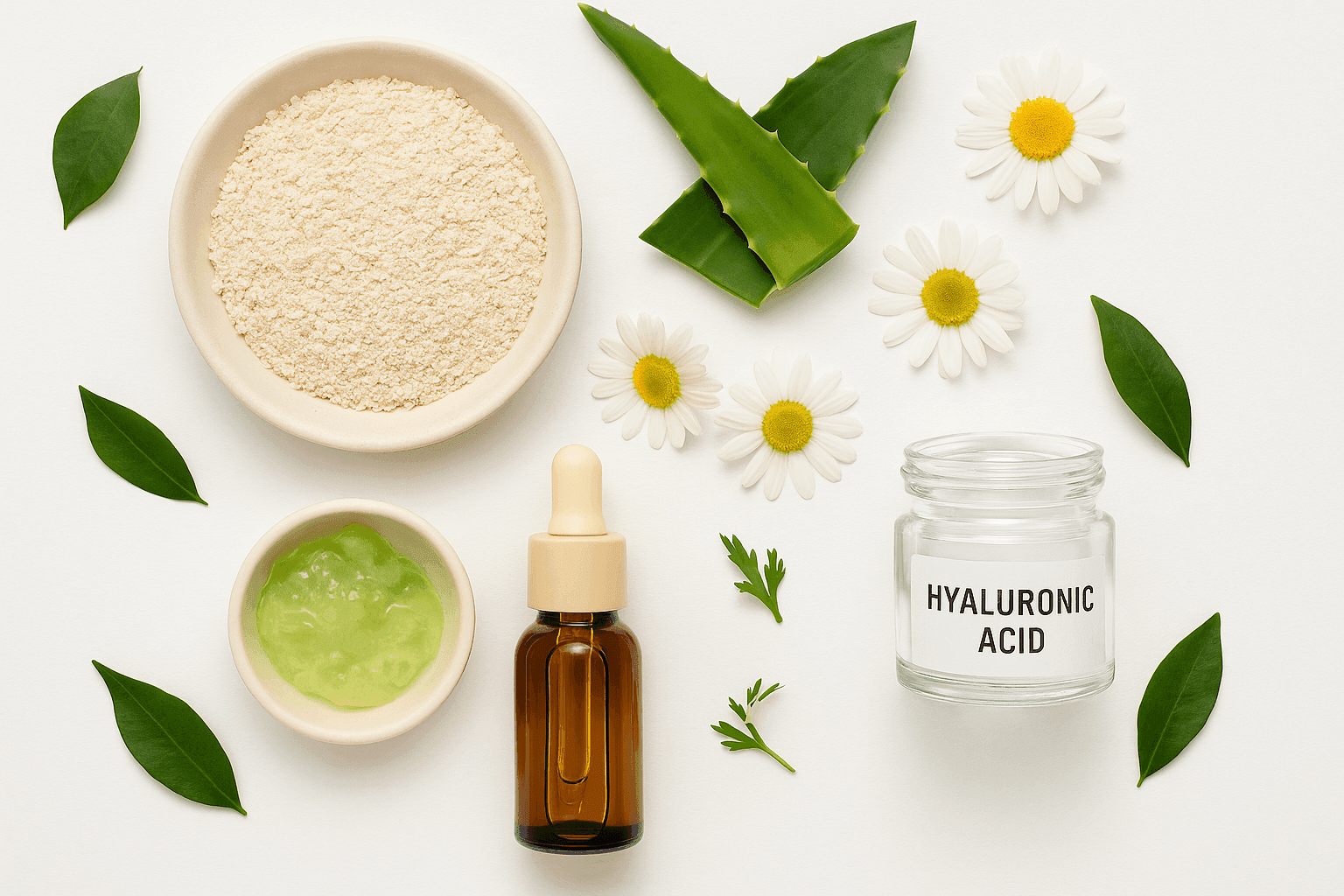
Daily Natural Skincare Routine for Sensitive Skin
If you have sensitive skin, it’s essential to follow a gentle and consistent routine. Stick to products that are fragrance-free and have minimal ingredients. Here’s a straightforward guide to help you out:
Step 1: Cleanser
Begin with a gentle, non-foaming cleanser like Cetaphil or CeraVe Hydrating Cleanser. This helps wash away dirt while preserving your skin’s natural moisture. Cleanse your face twice daily, avoiding harsh soaps or sulfates. After rinsing, pat your face dry instead of rubbing to minimize irritation.
Step 2: Toner (Optional)
If you want to include a toner, go for an alcohol-free option that features soothing ingredients like rose water or witch hazel. These can help calm redness and add hydration, but if you notice any irritation, it’s best to skip this step.
Step 3: Moisturizer
Keeping your skin hydrated is crucial. Look for a rich, fragrance-free cream or lotion that contains:
- Ceramides
- Glycerin
- Shea butter
- Jojoba or sunflower oil
Apply this morning and night. If you feel your skin needs an extra boost, consider adding a hyaluronic acid serum before your moisturizer.
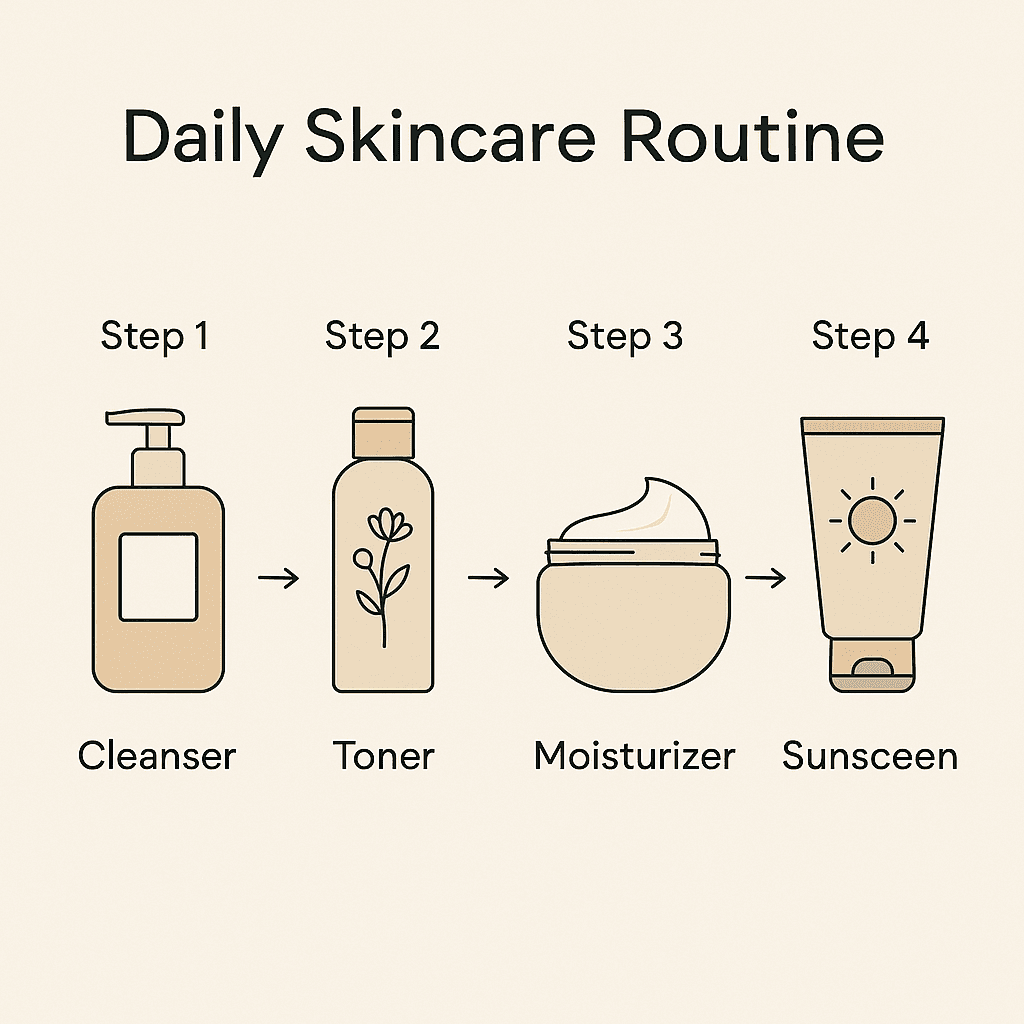
Step 4: Sunscreen
Don’t forget to protect your skin every day with a mineral sunscreen that has an SPF of 30 or higher (look for zinc oxide or titanium dioxide). These are gentler on sensitive skin compared to chemical sunscreens. Remember to reapply every two hours when you’re outdoors, and wearing a hat or seeking shade can also help.
Sensitive Skin Tips
✅ Patch Test First
Before introducing a new product, do a patch test on your arm or behind your ear for about 7–10 days to avoid any unexpected reactions.
✅ Avoid Over-Exfoliating
Limit exfoliation to just once a week using gentle methods like a soft cloth or an enzyme mask. Steer clear of harsh scrubs or strong acids, as they can harm your skin barrier.
✅ Treat Flare-Ups Naturally
If irritation occurs:
- Rinse off the product
- Apply cool compresses
- Use colloidal oatmeal or pure aloe vera
- Moisturize with a barrier-repair cream
If reactions are severe, don’t hesitate to consult a dermatologist.
✅ Support Skin from Within
Drink water, eat antioxidant-rich foods (fruits, veggies, omega-3s), and manage stress—these all impact skin sensitivity.
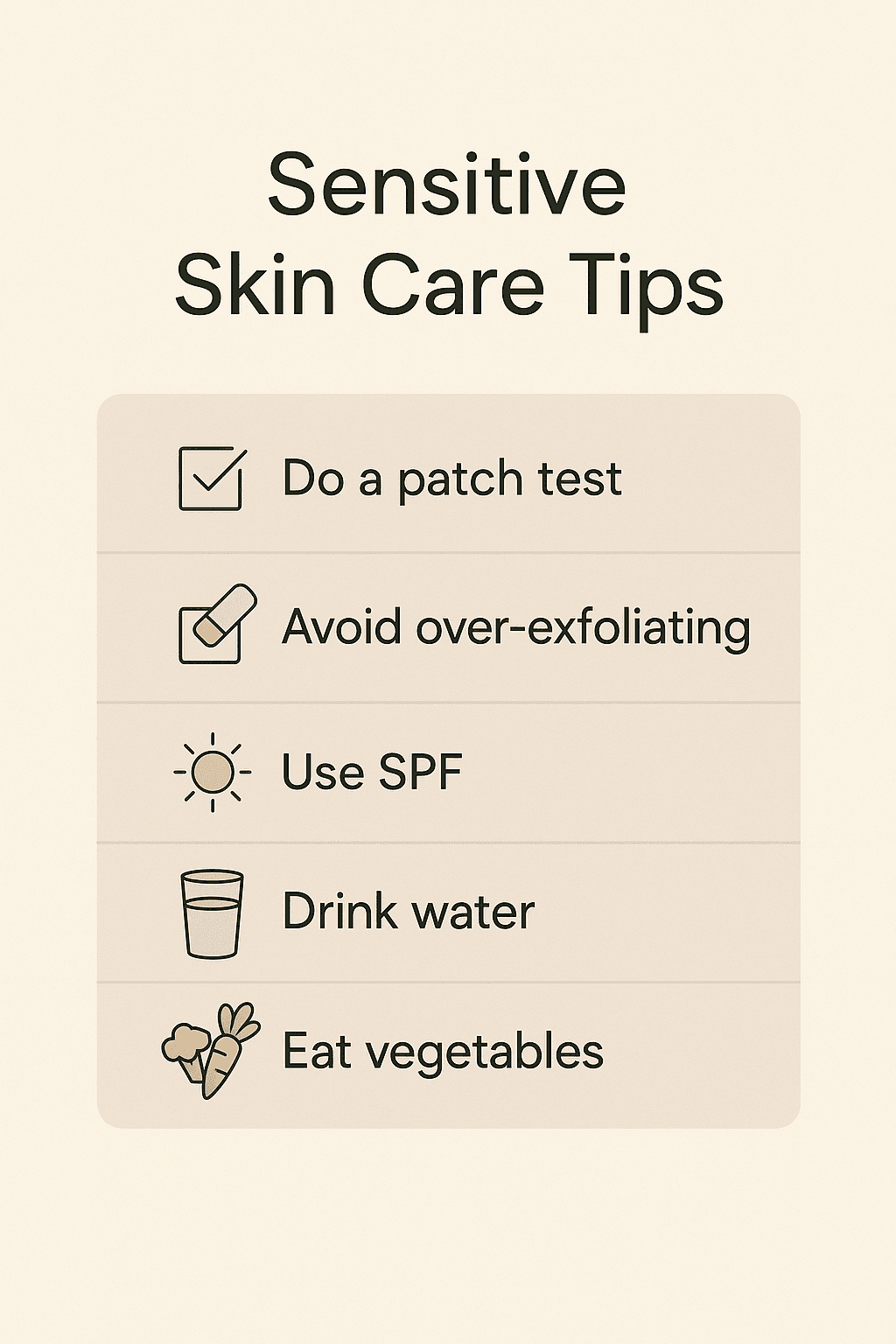
Common Mistakes to Avoid
❌ Using too many products – Keep it simple: just a cleanser, moisturizer, and sunscreen will do.
❌ Ignoring skin reactions – If something stings or turns red, it’s time to stop using it.
❌ Trusting misleading labels – Just because it says “natural” or “hypoallergenic” doesn’t mean it’s safe. Always check the ingredient list.
❌ Skipping sunscreen – UV damage can make your skin more sensitive. Make sure SPF is part of your daily routine.
Bottom Line: Stick to the basics, be gentle, and stay consistent. When it comes to caring for sensitive skin, less really is more.
FAQs: Natural Skincare for Sensitive Skin
Can natural skincare cure sensitive skin?
Not really. You can’t “cure” sensitive skin with just skincare. If it’s genetic or linked to conditions like eczema or rosacea, you’ll need to be extra careful. That said, a gentle, natural routine can help minimize flare-ups, boost hydration, and strengthen your skin barrier over time.
How can I tell if an ingredient will irritate my skin?
Always do a patch test. Try the product on your inner arm or behind your ear for about 7–10 days. Steer clear of known irritants like fragrances, alcohol, essential oils, and strong acids. If it burns or itches—even in a small spot—skip it for your face.
How long until I see results?
You should start noticing improvements in about 4–6 weeks. Your skin needs time to renew itself—around 28 days per cycle. Stay consistent, be patient, and introduce only one new product at a time so you can see what works.
Are natural oils safe for sensitive skin?
Some are! Jojoba, argan, and rosehip oils are usually safe and won’t clog your pores. Just avoid strong-smelling oils or essential oils like peppermint or lemon, as they can trigger reactions. Always patch test oils before applying them to your face.
What should I do after a skin reaction?
- Stop the product immediately
- Rinse with lukewarm water
- Soothe skin with cool compresses, aloe vera, or colloidal oatmeal
- Apply a gentle, fragrance-free moisturizer
If the reaction is severe or lasts more than a few days, see a dermatologist. Avoid scrubs or actives until your skin heals.
Conclusion: Natural Skincare for Sensitive Skin
If you have sensitive skin, it’s all about consistent, gentle care rather than quick fixes. Here’s a simple approach to follow:
- Problem: Identify triggers (fragrance, over-exfoliation, harsh chemicals)
- Agitate: Be aware of misleading labels like “natural” or “hypoallergenic”
- Solution: Stick to a simple routine of cleansing, moisturizing, and sun protection
Take it slow. Always patch test. Introduce new products one at a time. Over the course of weeks—not days—you’ll start to see less redness, improved hydration, and stronger skin.
And don’t forget:
✅ Moisturize daily
✅ Use SPF every morning
✅ Eat skin-friendly foods (omega-3s, fruits, veggies)
✅ Manage stress
Healthy, calm skin is possible—with the right habits and a lot of patience.
